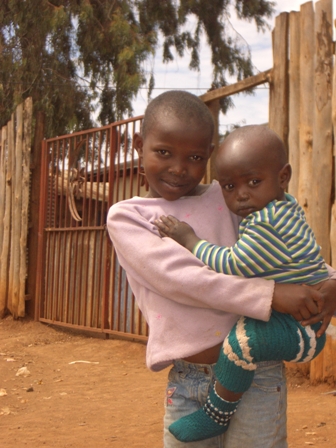
BRINQ is the home of entrepreneur and product designer Patrick Donohue, whose work focuses on high impact startups and products.
 There's a texture to life that we miss in our discussions of poverty, our arm chair strategies in the U.S. on microfinance, disruptive innovation, and entrepreneurship. The BoP Protocol Pilot team has been been in Kenya for almost a month now, visiting a number of homes and organizations throughout western Kenya, from rural farms to urban slums. This article is the first in a series of installments about the texture of life we've been experiencing. Note, names and details are sometimes changed, all the stories are true.
There's a texture to life that we miss in our discussions of poverty, our arm chair strategies in the U.S. on microfinance, disruptive innovation, and entrepreneurship. The BoP Protocol Pilot team has been been in Kenya for almost a month now, visiting a number of homes and organizations throughout western Kenya, from rural farms to urban slums. This article is the first in a series of installments about the texture of life we've been experiencing. Note, names and details are sometimes changed, all the stories are true.
Mitumba
"Cha bure ni bure" - free things are worthless
-Professor Lelo, Egerton University, Njoro, Kenya
One month before heading to Kenya I stopped by the Salvation Army to drop off a trash bag full of old shirts, pants, and shoes. Everything I donated was in good shape, it would certainly help some less fortunate soul, I thought, perhaps provide even a little bit of fashion too.
Last week, sitting in Paulette's front room, in her rented mud hut in Kibera, I found out where my discarded fashion may have ended up, in the many stalls and kiosks lining the streets of Kenya, as mitumba, donated goods for sale. Quality goods for a cheap price. A good thing, right?
Perhaps not so good for Paulette's husband, a Nairobi shoemaker whose market collapsed under him when a flood of cheaper, higher quality shoes hit the market. These days his business scrapes by on the occasional shoe repair.
Kenyans, we have found, are remarkably well dressed, no matter what their station in life. Early in the morning a sea of well-groomed Kiberans walk up Kibera Drive, past the Nakomat and YaYa Center (shopping malls in Nairobi), on their way out to look for jobs in the city. Some walk more two hours each way, uncertain if work is there for them or not. I have yet to learn the trick of how to keep my shoes as clean as Kiberans do, how they resist the ever present dust and mud is a mystery to me. Paulette's husband makes the migration every morning to his little shop space in the city, one cobbler among many: all of whom likely wear the very mitumba which undermine their livelihoods. Well dressed and without work.
Paulette speaks with a subdued resignation, her days are filled with preparation and waiting. Preparing breakfast for her three children (if there was food left from the night before), preparing the children for school, buying and fetching water from the local water taps in Kibera (illegal hookups to city's water supply), washing clothes on laundry days, waiting for the children to return for lunch, and always, waiting for her husband to return on a good day with a 100 shillings (about $1), hoping he brings enough back to buy food for dinner: maize and greens.
On the hot days, waiting in the house can become unbearable, the stench of the overflowing latrine outside her door becomes overpowering. Latrines are sometimes cleaned by Kibera's absentee landlords, by the better ones, though if the tenants are deliquent or refuse to pay rent, even the better ones let the latrines overflow. And even if you do pay rent, perhaps your neighbor does not, and the land lord doesn't send in the cleaning crews. The day we visited Paulette was a mild one, a waft would only come by with the breeze.
Paulette is a member of women's savings group in Kibera. I remember reading about such groups while in the U.S., women would pool there money, giving 10 or 20 cents a day, each getting a chance to take loans from the pot, money which they would use to buy tools or resources to better their lives. What did Paulette use her turn at the pot for?
"Food," she said, "when my husband comes home with no money for the day, you can't let the children go hungry, you just can't. They can't sleep if their belly is not full. So I take out a loan."
You don't use the money for capital, for any income generating opportunities?
"I don't have any skills, " Paulette declared, "I'm trying to learn tailoring, but there are so many tailors already in Kibera."
What if your husband can't bring home money, and you can't take out a loan?
"We fight," Paulette said, "but then I learn to keep quiet and cry a lot."
The best time of year is around Christmas, when everyone is preparing to head to their family homes outside of Nairobi, and everybody is spending money to look their best, which includes buying and repairing shoes. Paulette and her family often head to their birthhome in Western Kenya, and she saves up for a special meal for the children: fried chicken and chips. She smiles a little when recounting the memory, but then she adds, "But it's a good time of the year for the thieves too."